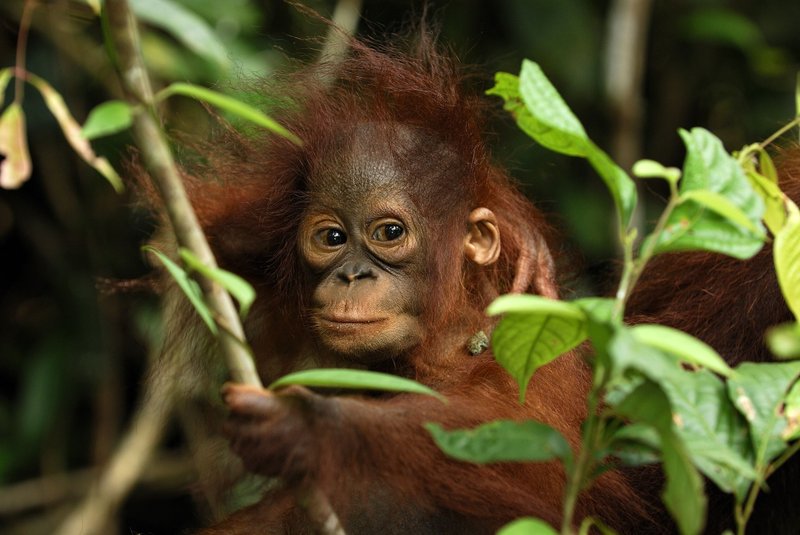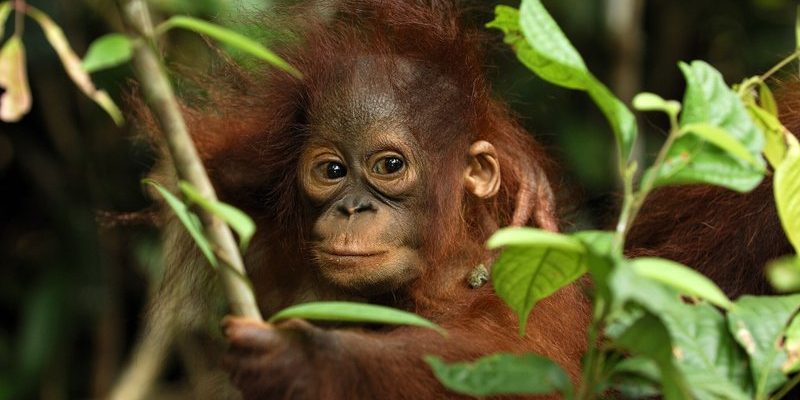
Thinking about it, orangutans are like living links to our own past. They share about 97% of their DNA with humans, and studying them can teach us a lot about ourselves and our world. But just as we’ve made strides in understanding them, we’re also facing the harsh reality that they might not be around much longer. So, how did we get here, and what can we do? Grab a cup of coffee, and let’s unpack this together.
What Does It Mean for Orangutans to Be Endangered?
When we say that orangutans are endangered, it means their population is at a serious risk of extinction. In technical terms, they fall under the IUCN (International Union for Conservation of Nature) Red List as Critically Endangered. This classification indicates that they face an extremely high risk of extinction in the wild.
You might be wondering why this matters. Well, orangutans play a vital role in their ecosystem. They help disperse seeds, which maintains the health of forests. The loss of these incredible primates could lead to a domino effect that damages not just their habitat but countless other species as well.
The current estimates suggest that there are around 55,000 Bornean orangutans and about 13,600 Sumatran orangutans left in the wild. Both species are losing habitat rapidly due to human activities. This brings us to the next key point: what’s causing their decline?
Reasons Behind Orangutan Endangerment
The main culprit driving orangutan endangerment is deforestation. The palm oil industry is one of the biggest offenders, with vast areas of rainforest being cleared to make way for palm plantations. It’s a bit like clear-cutting your backyard to build a pool; it may seem fun at first, but it destroys the natural habitat.
Here are some key factors contributing to their endangered status:
- Habitat Loss: Logging, agriculture, and human settlements push orangutans further into smaller patches of forest.
- Poaching: Illegal hunting or capturing of orangutans for the pet trade is still a problem.
- Climate Change: Changing weather patterns and increased natural disasters further threaten their habitats.
Each of these factors intertwines, creating a perfect storm for these magnificent creatures. The good news is that efforts are underway to combat these threats; however, they require global support.
Current Conservation Efforts for Orangutans
Various organizations are putting in the hard work to protect orangutans and their habitats. For example, the Borneo Orangutan Survival Foundation is dedicated to the long-term survival of the species. They focus on habitat restoration, rehabilitation of rescued orangutans, and community education about the importance of preserving these animals.
Another notable initiative is the Sustainable Palm Oil Manifesto, which aims to promote responsible palm oil production. This encourages companies to source palm oil that doesn’t result in further deforestation, guiding consumers toward more environmentally friendly choices.
Here’s a snapshot of what these conservation efforts involve:
- Rehabilitation Centers: These facilities care for injured or orphaned orangutans, preparing them for life back in the wild.
- Community Engagement: Working with local communities to develop sustainable alternatives to deforestation.
- Law Enforcement: Strengthening laws to combat poaching and illegal logging.
Creating awareness and inspiring action can go a long way. But what can you do from your home to help?
How You Can Help Orangutans
Feeling a bit overwhelmed by the situation? Don’t worry; there are plenty of ways you can make a difference, even from afar. Here are some simple yet effective actions you can take:
- Educate Yourself: Knowledge is power. Learn about the issues orangutans face and share that knowledge with friends and family.
- Support Sustainable Products: Look for products that use sustainable palm oil or are certified by organizations like Rainforest Alliance.
- Donate: Consider donating to reputable conservation organizations that protect orangutans and their habitats.
Even small steps can lead to big changes. By choosing to be a conscious consumer and advocating for wildlife protection, you’re contributing to a healthier planet.
The Role of Legislation in Orangutan Conservation
Legislation plays a crucial role in protecting orangutans. Laws that protect their habitats are essential, but enforcement is often a challenge. For instance, Indonesia has laws against deforestation, but illegal logging still occurs at alarming rates.
Here’s why legislation matters:
- Habitat Protection: Well-crafted laws can help preserve critical habitats necessary for orangutans.
- Awareness Campaigns: Legislative measures can raise public awareness about the importance of conservation.
- Funding: Government policies can direct funding toward conservation projects.
While many countries are taking steps to enforce better laws on wildlife protection, it’s a continuous effort that requires public support and scrutiny.
The Importance of Biodiversity and Ecosystem Health
You might be asking, “Why should I care about biodiversity?” Here’s the thing: every species, including orangutans, plays a unique role in maintaining the health of our planet. They contribute to a balanced ecosystem, which is essential for everything from clean air to a stable climate.
When we lose a species like the orangutan, the effects can ripple through the ecosystem. For example, without orangutans to disperse seeds, certain trees might struggle to reproduce, leading to forest decline. This, in turn, affects other animals that rely on those trees for food and shelter.
Biodiversity is like a complex web, and every strand is connected. Preserving these strands is crucial for a thriving planet.
So, is the orangutan endangered? Yes, and the situation is urgent. However, by working together—through conservation efforts, legislation, and everyday actions—we can still change the course for these incredible creatures.
As we savor our coffee, let’s remember that each small action counts. By raising awareness and supporting sustainable practices, you’re not just helping orangutans; you’re contributing to the health of our planet. Together, we can turn the tide for these amazing apes and ensure that future generations can also appreciate their beauty and importance in the world.

